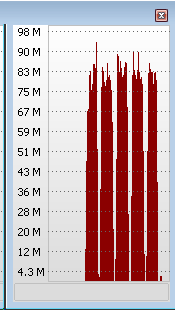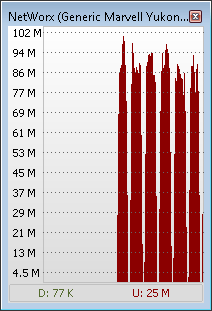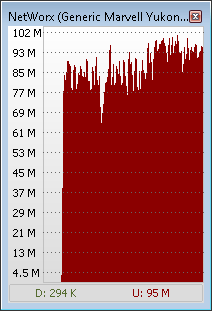Hi, i am planning to build my first freenas version 8 using zfs. Below is the hardware I planning to buy to build my little nas server I have a few questions.
1. I am planning to buy 2 Seagate Barracuda ST3000DM001 3TB 7200 RPM will I issues with this model of hard drive or the size 3tb drive
2. I will be using 8GB of memory to use zfs I am planning to use 2 drives to start out with I will be adding more drives in the future 2 and 3 terabyte drives will be able
to add new drives to my pool and add to my storage size?
1 -HP ProLiant N40L Ultra Micro Tower Server
http://www.newegg.com/Product/Product.aspx?Item=N82E16859107052
2- Kingston 4GB 240-Pin DD
http://www.newegg.com/Product/Product.aspx?Item=N82E16820139466&Tpk=KTH-PL313E/4G
2 - Seagate Barracuda ST3000DM001 3TB 7200 RPM
http://www.newegg.com/Product/Product.aspx?Item=N82E16822148844
1 - Patriot Xporter XT Boost 16GB Flash Drive
http://www.newegg.com/Product/Product.aspx?Item=N82E16820220253
1. I am planning to buy 2 Seagate Barracuda ST3000DM001 3TB 7200 RPM will I issues with this model of hard drive or the size 3tb drive
2. I will be using 8GB of memory to use zfs I am planning to use 2 drives to start out with I will be adding more drives in the future 2 and 3 terabyte drives will be able
to add new drives to my pool and add to my storage size?
1 -HP ProLiant N40L Ultra Micro Tower Server
http://www.newegg.com/Product/Product.aspx?Item=N82E16859107052
2- Kingston 4GB 240-Pin DD
http://www.newegg.com/Product/Product.aspx?Item=N82E16820139466&Tpk=KTH-PL313E/4G
2 - Seagate Barracuda ST3000DM001 3TB 7200 RPM
http://www.newegg.com/Product/Product.aspx?Item=N82E16822148844
1 - Patriot Xporter XT Boost 16GB Flash Drive
http://www.newegg.com/Product/Product.aspx?Item=N82E16820220253



